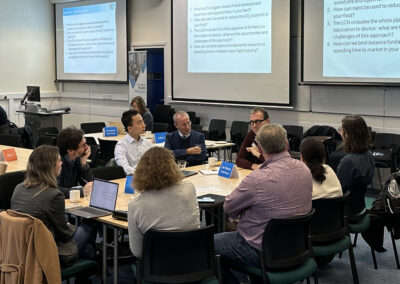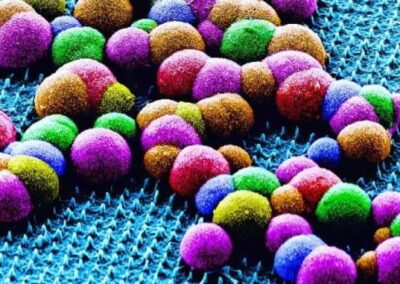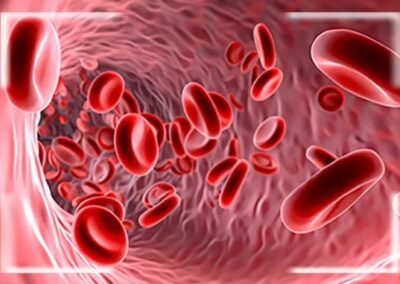Dr Iain Dunlop’s uses methods from nanotechnology and surface chemistry to address questions in cell biology. In vivo, cells determine their behaviour largely by reacting to their environments; in particular, they respond to specific signals that are located on surfaces that they come into contact with. Such signals are hugely important in ensuring each cell plays its role within multicellular organisms. However, because biological surfaces are complex, it can be difficult to know exactly which features are significant. This problem can be addressed by making artificial surfaces that imitate aspects of in vivo surfaces, varying the properties of these artificial surfaces, and observing their effects on the behaviour of cells brought into contact with them. Through this process, the mechanisms of cell signalling can be understood.



